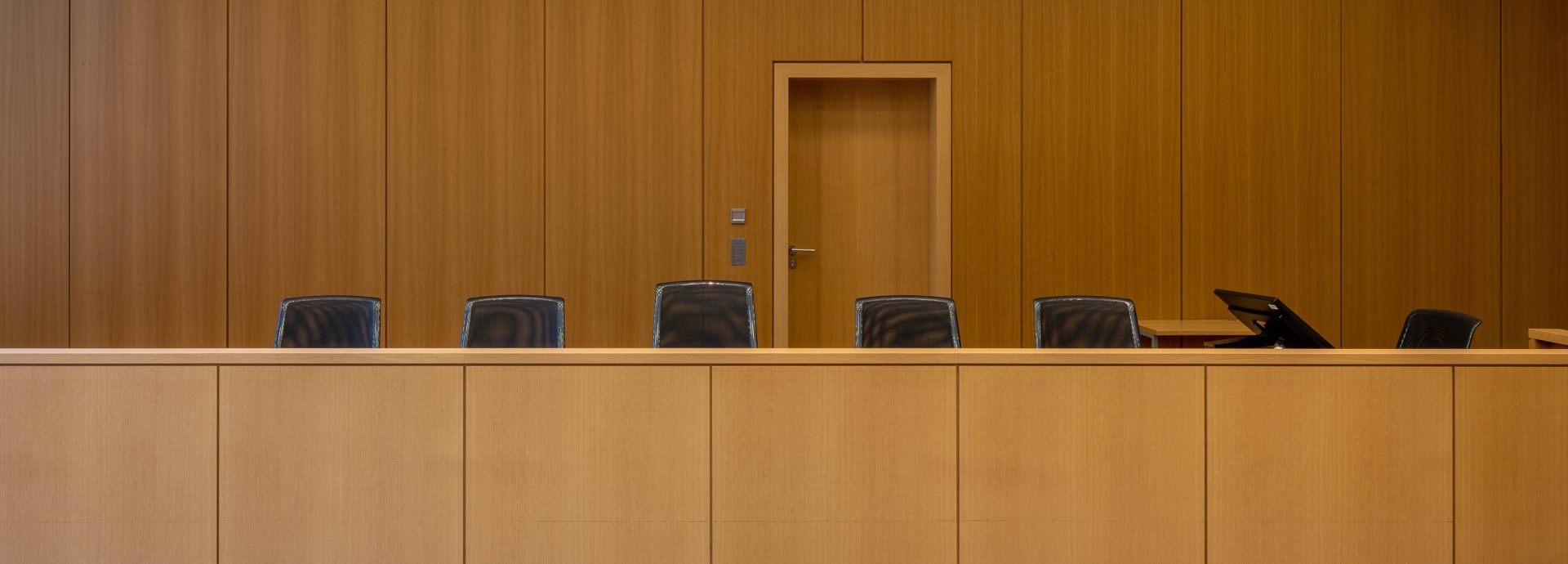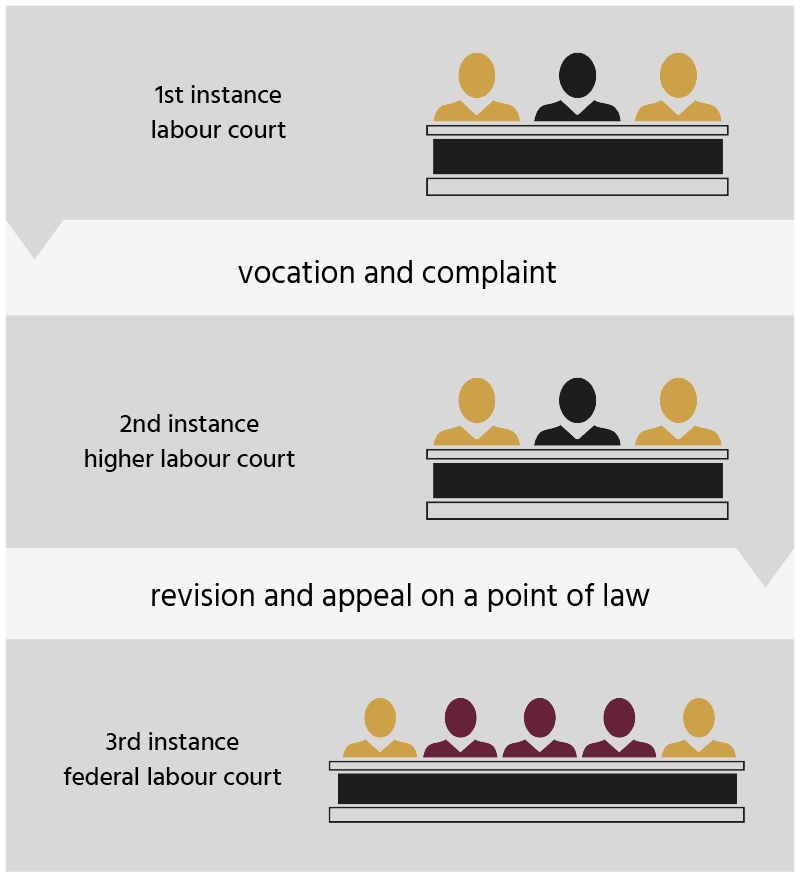Judgement
In „Urteil“ procedures at labour courts of first instance (“Arbeitsgerichte”) there will be a conciliation hearing in front of the Presiding Judge of the panel without the lay judges just a few weeks after the lawsuit has been filed. It is the aim of the conciliation hearing to settle the case without a court hearing. The conciliation hearing is also used to speed up the procedure. If a settlement cannot be reached, a court hearing in front of the full panel will be prepared. Nevertheless, labour courts are bound to work towards an amicable arrangement at any time during the proceedings. If a judgment has to be passed, the voting right of the lay judges equals the voting right of the Presiding Judge.
Appeal
The unsuccessful party (both parties could be partially unsuccessful) can lodge an appeal (“Berufung”) against the labour court’s judgment with the relevant higher labour court (“Landesarbeitsgericht”), if the lower court has granted leave to appeal in its judgment. The appeal shall be allowed if the case is of fundamental legal importance. Additionally, appeal can be lodged if the value of the cause of appeal exceeds 600 Euro or if the claim relates to the existence, non-existence or termination of an employment relationship.
Procedure Appeal
A “Beschluss” procedure appeal (“Beschwerde”) against rulings made by a labour court of first instance is heard by the relevant higher labour court without further requirements.
At appeal, the case is reheard by the higher court both on points of law and the facts of the case, which means that – some reservations notwithstanding – fresh facts can be submitted by the parties. Under certain conditions, appeals on points of law can be lodged against higher labour court judgments. These appeals, as well as judicial review applications in the case of higher labour court “Beschluss” procedures, are heard by the Federal Labour Court.
Appeal on points of law
An appeal on points of law (“Revision”) against the higher labour court’s judgment can be lodged, if the higher labour court has granted leave to appeal in its judgment. The appeal shall be allowed if the case is of fundamental legal importance, for instance with regard to its effects on the general public.
Leave to appeal on points of law
In the “Beschluss” procedure, leave to appeal on points of law („Rechtsbeschwerde“) must be granted for the same reasons. If the higher labour court does not grant leave to appeal on points of law, an appeal against the denial of leave to appeal can be lodged (“Nichtzulassungsbeschwerde”).
Representation at court
At labour courts of first instance the parties may either appear on their own behalf, or be represented by a lawyer, a representative of an employer’s association or a trade union or any other authorised person.

